June 26, 2013
Dear Board Member,
June's update features a Thought Leader Series piece by Patricia Reiter, director of the Rob and Melani Walton Sustainability Solutions Initiatives at Arizona State University. In her piece, Reiter describes the impact and responsibilities of the eight programs under the Walton Sustainability Solutions Initiatives.
The Directorate would also like to extend our deepest gratitude to Sander van der Leeuw, as June is Sander's last month serving as the dean of the School of Sustainability. During his time at the School, Sander has inspired, guided, and motivated hundreds of future sustainability changemakers. We wish him the best of luck and look forward to seeing his work as a sustainability scientist, professor at the School of Human Evolution and Social Change and the School of Sustainability, and in his capacity as co-director of Complex Adaptive Systems@ASU.
Interim Dean Chris Boone will join us to lead the School of Sustainability starting in July.
Please feel free to email or call us with any questions or comments about this briefing.
Best regards,
|
A Thought Leader Series Piece
 By Patricia Reiter By Patricia Reiter
Note: As the Director of the newly established Rob and Melani Walton Sustainability Solutions Initiatives, Patricia Reiter is responsible for overseeing the success and impact of eight programs that use evidence-based knowledge to deliver solutions to today's complex sustainability issues.
On occasion, Arizona State University (ASU) President Michael M. Crow draws similarities between the fields of medicine and sustainability. ASU Senior Sustainability Scientist and United Nations Champion of the Earth Sander van der Leeuw developed the idea further in a diagram (see below) that describes the domain of medicine as the health of the individual in relationship to their environment and the domain of sustainability as the health of societies interacting with their environment. This analogy between medicine and sustainability is useful in explaining the intent of the ASU Global Institute of Sustainability's Walton Sustainability Solutions Initiatives.
Due to the generosity of Rob and Melani Walton, the Global Institute of Sustainability received a five-year investment from the Walton Family Foundation for eight unique programs to help solve sustainability challenges across the globe. These challenges span environmental, economic, and social sectors that affect us all. The Walton Sustainability Solutions Initiatives are focused on delivering practical, holistic solutions in the same way a general practitioner in a teaching hospital works with real patients to not only heal individuals, but also to test, refine, document, and promote best practices. This in turn offers critical real-world learning opportunities for the next generation of practitioners. Like a teaching hospital, we are focused on improving the public good through direct engagement with the underserved, providing educational outreach, and promoting proven interventions.
Our work has both short- and long-term impact, as we begin to apply systems thinking to complex challenges facing individuals, businesses, and institutions. Our clients and partners often describe their issues as a set of simple symptoms, but when we probe for external and internal causes, we expand their understanding of risks, opportunities, and trade-offs.
Symptoms turn into solutions
For example, the Sustainability Solutions Extension Service is providing advice to the City of Phoenix on how to best achieve its goal of diverting 40 percent of waste from the City's landfills by 2020. The City's current rate is 13 percent. The Solutions Service's initial analysis indicated that City employees drive over 7 million miles a year picking up and delivering waste to landfills. This represents a great cost in fuel and high carbon emissions. By identifying potential savings and mapping opportunities, we are building an economic case for a regional resource recovery center that will further streamline waste and recycling efforts while reducing greenhouse gas emissions.
Both the Solutions Service and the Center for Integrated Solutions to Climate Challenges are working with the City of Phoenix to update the City's greenhouse gas emissions inventory—the first step leading to a vulnerability assessment and climate action plan. Like a routine doctor checkup, this inventory will allow policymakers and citizens to make informed decisions regarding everyday operations, long-term investments, and personal responsibility.
Read more »
|
|
New York Times: How Phoenix uses water according to ASU scientists
|
|
Decision Center for Desert City co-director Dave White and Mayor Greg Stanton's sustainability adviser Colin Tetreault say Phoenix and its surrounding cities use water to make our communities livable, but in a way that conserves for the future. Read more »
|
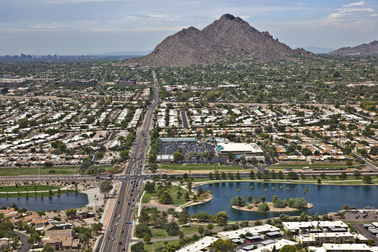
|
ASU professor, sustainability scientist named Ecological Society of America fellow
|
|
Osvaldo Sala says he is proud to join a group that cares for the stewardship of the planet and admires the ESA for not only its growth in fellows, but also the breadth of sciences the fellows represent. Read more »
|
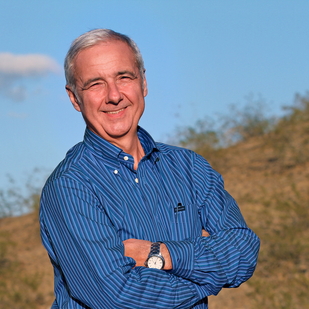
|
Phoenix Business Journal: The greener the business, the more profit
|
|
Sustainability Scientist and School of Sustainability professor George Basile says more businesses are realizing that sustainability is not just good for the environment, but great for long-term profit as well. Read more »
|
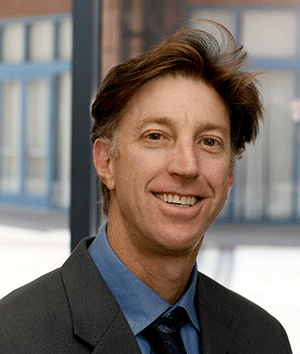
|
GreenBiz Group, The Sustainability Consortium, and ASU Global Institute of Sustainability partner on weeklong Sustainability Solutions Festival
|
|
The festival will be held in Phoenix in February 2014 and will include the 2014 GreenBiz forum as well as workshops to leverage like-minded organizations and combine leadership, expertise, and innovation. Read more »
|

|
ASU awarded Think Green Grant, will expand composting program
|
|
School of Sustainability students will partner with the Facilities Development Management Recycling program to develop new ways to divert the university's waste from the landfill to reach ASU's 2015 zero waste goal. Read more »
|
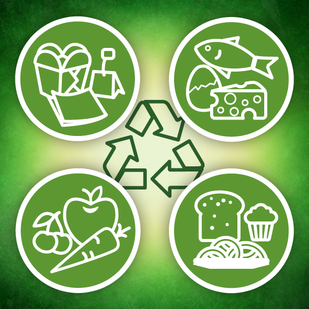
|
Sustainability alum takes the 'hazard' out of 'hazardous waste'
|
|
As a hazard waste compliance officer for the Arizona Department of Environmental Quality, Bradley Baker conducts inspections of facilities and assist owners in providing a healthy environment for employees. Read more »
|
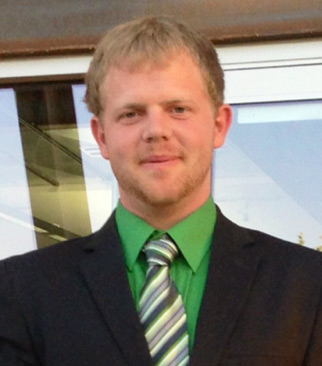
|
Biodiesel Magazine: Arizona State University student creates algae-inspired art
|
|
School of Art student Phillip Carrier is an artist-in-residence at ASU's AzCATI, creating a piece that will blend science, technology, and art to help realize a more sustainable future. Read more »
|

|
Students, faculty 'show' sustainability at open house event
|
|
The School of Sustainability's year-end event had students, faculty, and community members partnering together for future collaborations, research, and education, giving students a professional team setting while solving real-word sustainability issues. Read more »
|
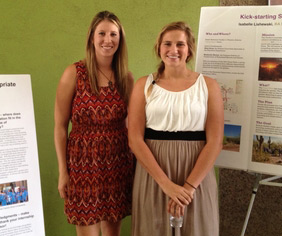
|
|